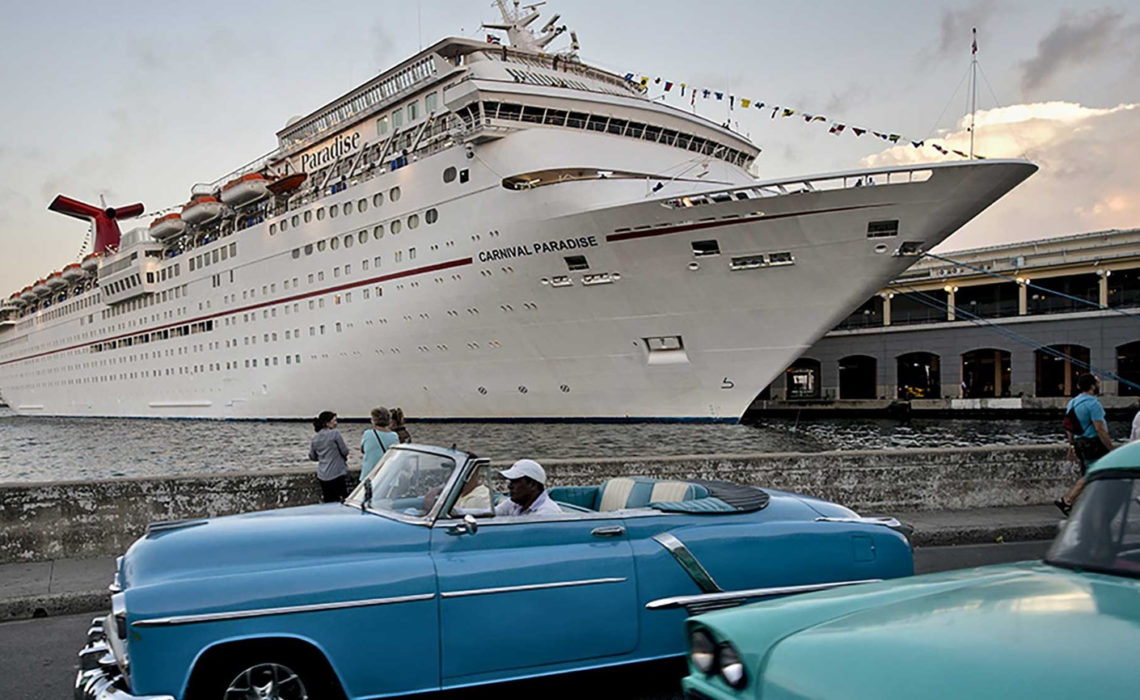
You might also like:
As the Trump administration’s policies toward Cuba once again sow confusion and uncertainty among suppliers and consumers alike, travel providers are at once benefiting from a rush of bookings while also fearing the possibility of severe Cuba travel restrictions.
Speaking in Miami last month, national security advisor John Bolton said the Treasury Department “will implement further regulatory changes to restrict nonfamily travel to Cuba.”
The Treasury Department confirmed shortly thereafter that it would implement “Treasury-specific changes to nonfamily travel and other regulations in the coming months via amendments to [its] Cuban Assets Control Regulations.”
But that isn’t the only change in Cuba policy that is threatening to impact travel. Companies doing business in Cuba are now faced with possibly being sued for restitution for property seized after the Cuban Revolution. This month, Carnival Corp. became the first defendant under the Title III provision of the 1996 Helms-Burton Act, which allows U.S. citizens or entities to sue over property seized by the Cuban government starting in 1959.
Title III had been waived by the last three presidents, but the Trump administration began enforcing it in April.
In Carnival Corp.’s case, an American claiming to be the original owner of the Havana Docks Corp., which multiple cruise lines use when visiting the island’s capital, sued Carnival because it was the first cruise line to do so.
So far, no other travel companies have been named in Helms-Burton lawsuits, although the Associated Press reported this month that a man claiming to be the original owner of Cuba’s main airport and its national airline as well as three hotels in Havana is planning to sue several airlines, including Aeromexico and Latam as well the Spain-based Melia hotel company.
How much teeth any current and potential Helms-Burton lawsuits have is unclear.
William LeoGrande, an American University professor who has written extensively about U.S.-Cuba relations, said that Title III has an exemption for transactions involving expropriated property linked to travel.
“It says ‘trafficking’ does not include ‘transactions and uses of property incident to lawful travel to Cuba, to the extent that such transactions and uses of property are necessary to the conduct of such travel,'” LeoGrande said. “Carnival has already invoked this passage in its defense against the suit filed against it, but we will have to see how the courts interpret ‘incident to lawful travel.'”
ASTA made clear its opposition to the Helms-Burton enactment before it happened, sending a letter in March to Florida senators Marco Rubio and Rick Scott (both Republicans) expressing its concerns, “especially as it relates to the operations of our cruise line and airline partners there.”
Citing research from Phocuswright, ASTA said U.S. agencies sold 44% of airline tickets purchased by consumers and more than two-thirds of all cruises, the primary methods of transportation to Cuba. “It follows then that policy changes that increase legal and financial uncertainty in travel suppliers’ business operations risk harm not only to those companies but to a broad swath [of] U.S. travel advisors, as well,” ASTA wrote.
Unintended effects
While the threat of new travel restrictions is of concern to travel advisors and tour operators, it has also prompted a surge in Cuba bookings.
“The John Bolton speech … has seemingly energized the traveling public,” said InsightCuba president Tom Popper, who reported that his company had seen a 23% increase in traffic to its website week-over-week following the speech and that bookings were up 18%.
Classic Journeys founder Edward Piegza also said that Cuba inquiries and bookings were up in the wake of Bolton’s remarks, which he attributed to the fact that prior changes to Cuba travel regulations took several months to take effect and booked travel was grandfathered in.
“Both combine to create additional demand for travel to Cuba that is scheduled, if not fully completed, sooner rather than later,” he said.
Joe Pcolinsky, manager of partner relations for Frosch, said he has not yet seen a bump in Cuba requests in the immediate aftermath of the announcement. He attributed that to the vagueness of Bolton’s comments, which might have “tempered” reactions. But he said that ultimately, more restrictions might be a boon to travel advisors.
“Should the administration begin to outline specific regulatory changes,” he said, “then in my opinion, we might start to see a bit more in the way of travelers looking to get a trip to Cuba in before these changes take effect or seeking help from a travel advisor rather than trying to navigate the red tape on their own.”
LeoGrande said it is too soon to know how extensive the restrictions will be, adding that the administration might not yet have decided the extent of the restrictions.
“When they promise to curtail ‘veiled tourism,’ I assume they mean killing people-to-people travel, as George W. Bush did,” he said. “Whether they go further and eliminate some travel categories, restrict academic travel to kill study abroad and academic exchanges, as they also did under Bush, and require specific licenses for most travel all remains to be seen.”
Pcolinsky, for one, is optimistic. He said he believes that the goal of the Trump administration is to “divert funds from making it into the hands of the various arms of the Cuban government who control tourism.”
“In my opinion, any regulatory changes are not meant to completely stop tourism to Cuba,” he said. “They would be implemented to make it more difficult for the Cuban government to directly benefit from tourism to Cuba.”
Source: travelweekly.com



